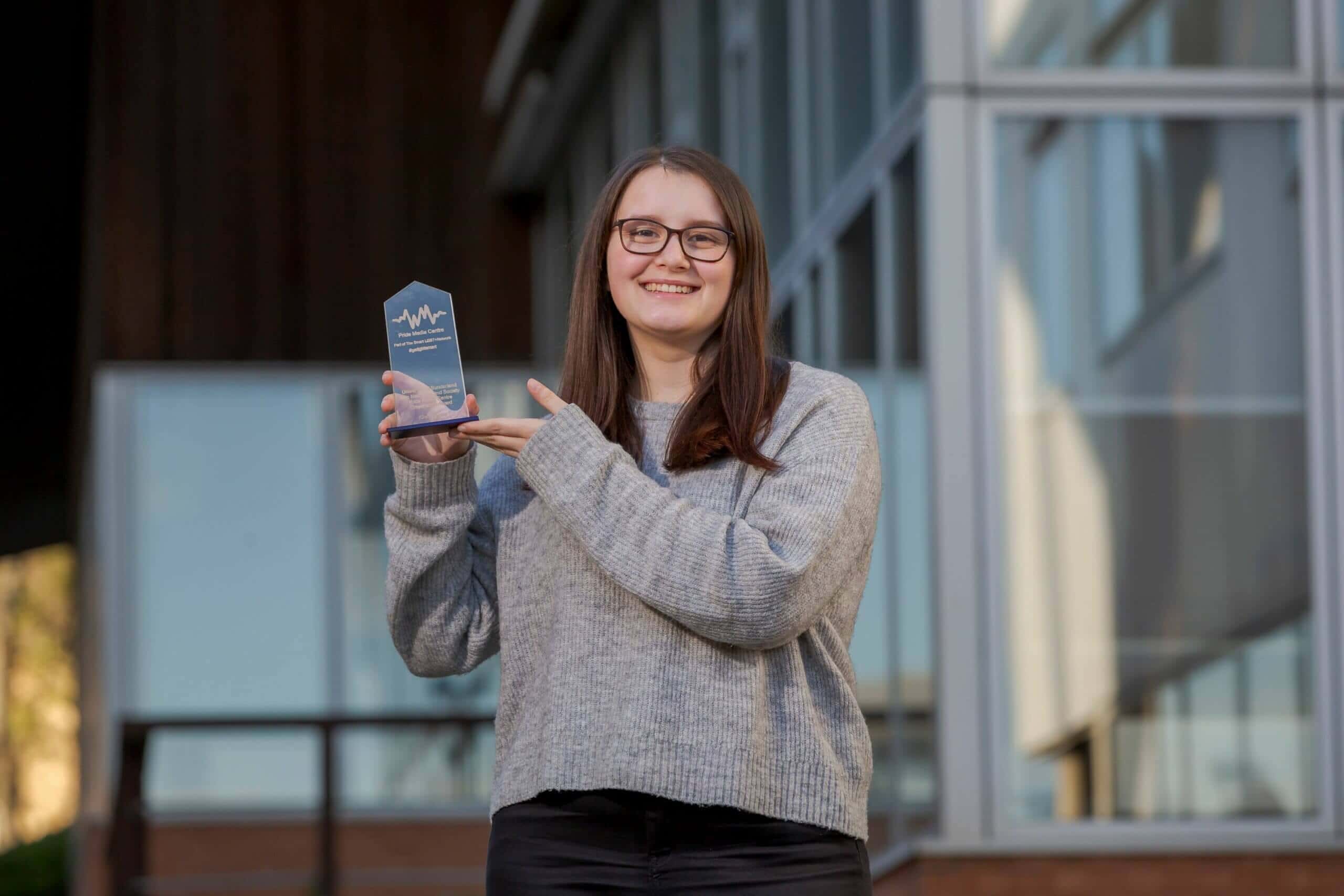
A STUDY which shines a light on racial and gender stereotypes in the billion-dollar gaming industry has led to a graduation prize for a Sunderland Masters student.
Kirsty Evers wanted to better understand the attitudes of players towards the protagonists within character-focused video games, who are commonly white, straight and male and leave no room for diverse representation of women or the BAME community.
Many players, who are not white, straight or male are requested to play as these characters for hours if they want to take part in the hobby. How this unequal representation is affecting players is paramount to understanding the importance of making a change, the study found.
Kirsty surveyed almost 600 gamers as part of the dissertation for the MSc Inequality and Society degree at the University of Sunderland, which led to the highest mark on her course and prize for Dissertation of the Year.
The 23-year-old, from Darlington, discovered that the majority of participants in her study did want better representation and believed that changing characters from the ‘white male’ formula would not harm those who are represented and would instead support those who feel they are underrepresented.
Participants also identify that there are multiple reasons why they believe the inequality is happening; from historically embedded social norms and values to developers feeling comfortable or appealing to an assumed target audience of young white males. Lastly, whilst participants do want more diverse protagonists there is a real concern that this could lead to tokenisation or stereotypical representations.
To read the full study click here.
Kirsty drew on her own background as a life-long gamer and her bachelor’s degree in Media, Culture and Communications, coupled with challenging for better gender equality and an end to sexism inspired by the #MeToo and Black Lives Matter movements.
“I felt the time was right to bring attention to the industry, given little attention,” said Kirsty, currently working as a Representation Assistant Intern within Sunderland’s Students’ Union.
“Many argue that for too long, the gaming world has been male-dominated, and female characters are stereotyped as sidekicks, damsels in distress, or appear overtly sexual with exaggerated figures and minimal clothing.”
She adds: “This idea that video games are a ‘boys club’ that prioritises white players is a prevailing issue not only for the protagonists of video games but also in the communities and industry.
“Within this dissertation, the focus was squarely placed on the players and how they are perceiving this inequality. Furthermore, the protagonist was also the focus as, with character-focused games, this is who the players are asked to relate to, empathise with and embody if they wish to play the game.
“The issue is that players are primarily asked to do this with white and male protagonists, they are rarely given the opportunity to play as a protagonist with different demographic characteristics.
“It is important then to investigate the attitudes of white and male players towards their over-representation but also the attitudes of under-represented players and how they are being affected by the unequal representation and opportunities afforded within video games.
“Video games are not being created within a vacuum but are formed by developers, producers and fans who exist within and have learned from wider social contexts and ideologies. Studying video games therefore can assist in an understanding of how certain unequal ideologies are being perpetuated and supported through the culture, characters, and stories.”
Kirsty graduated during the University of Sunderland’s Winter Ceremonies last month (November) with a Distinction from the new MSc Inequality and Society, the first Masters of its kind in the region, and offers an understanding of the major causes of inequality, why some groups face unique forms of disadvantage in areas such as health, sexualities, gender, age, domestic abuse, childhood and socio-economic issues.
Programme Leader, Drew Dalton, said: “The team chose Kirsty for this inaugural prize as her mark was the highest we gave out for a dissertation this year. In addition to this, Kirsty’s dissertation was an innovative and fascinating insight into the lack of representation in computer game antagonists.
“In an industry which is larger than Hollywood, and is frequently under-researched, Kirsty offered a piece of research which accessed hundreds of respondents.”
Dr Thomas Rodgers, Kirsty’s dissertation supervisor, added: “Kirsty has managed to shed a much-needed light on the ways in which the video-games industry must be understood, like all commercial entertainment industries, as contributing to and reinforcing long-standing processes of social inequity.
“Based on primary research, Kirsty has put together a project that goes a long way to establishing the scantly-recognised need for critical analyses of the social, cultural, and economic underpinnings of what is now the most commercially successful and growing entertainment industry across the globe.”
The ‘Best Dissertation Award’ is sponsored by the Pride Media Centre, in Gateshead, a new business and media hub for the Lesbian, Gay, Bisexual, Transgender (LGBT+) community. It is the first of its kind in the UK.
Kirsty said: “I have thoroughly enjoyed the Masters programme, it was definitely the right choice. I faced some challenges during lockdown but keeping in touch with my lecturers throughout helped so much.
“I’m delighted with this prize and to achieve a distinction was just brilliant. I have had an amazing experience at Sunderland and wanted to give back through the SU Internships scheme, as well as becoming a student ambassador and a course representative.
“All these skills will no doubt help me in the future, as I look towards a career in secondary school teaching or even a PhD.”



